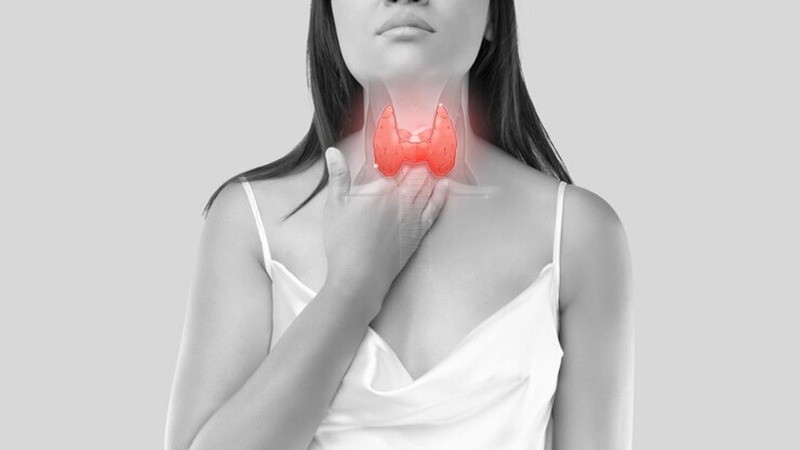
Iodine, a micronutrient often overshadowed by its more prominent counterparts, plays an indispensable role in maintaining the optimal functioning of our body. As iodine levels teeter on the edge of insufficiency, a myriad of symptoms unfurl, acting as distress signals that the body desperately needs attention. This comprehensive journey will navigate through the complexities of iodine deficiency, unraveling the subtle nuances of symptoms, practical solutions, and the global ramifications of this often underestimated health concern.
Before delving into the symphony of symptoms, it's crucial to grasp the fundamental role iodine plays in our biological orchestra. Iodine serves as a cornerstone for the synthesis of thyroid hormones, which orchestrate metabolic processes and contribute significantly to overall growth and development.
The thyroid gland, a maestro in our endocrine ensemble, heavily relies on iodine. Inadequate iodine availability leads to a symphony of disruptions in hormone production, setting the stage for a variety of health issues.
As we navigate the intricate composition of the human body, it's essential to decipher the subtleties and crescendos of symptoms that may indicate an iodine deficiency.
One of the initial indicators is a lingering sense of fatigue and weakness. Iodine deficiency disrupts the energy production mechanisms, leaving individuals drained and lethargic.
A sluggish thyroid, a consequence of insufficient iodine, often leads to unexplained weight gain. The slowing metabolic rate becomes evident through changes in body composition.
A telltale sign of iodine deficiency is the visible enlargement of the thyroid gland, known as a goiter. This swelling in the neck represents the thyroid's attempt to compensate for the insufficient iodine.
Iodine deficiency can impair cognitive function, resulting in difficulties with concentration and memory. In children, this becomes a significant concern as it can impact learning abilities.
Dry and flaky skin, coupled with brittle hair and nails, may be indicative of iodine deficiency. The integumentary system bears the brunt of insufficient iodine, manifesting in various dermatological concerns.
Iodine's influence on hormone regulation extends beyond the thyroid. Deficiency can lead to disruptions in menstrual cycles and fertility issues in both men and women.
Iodine deficiency has been associated with muscle weakness and joint pain. Individuals may experience discomfort and a reduction in overall mobility.
Understanding the symphony of symptoms is the prelude; the main act involves addressing iodine deficiency through practical and actionable measures.
Incorporating iodine-rich foods into the diet, such as seaweed, fish, and dairy products, can help maintain optimal iodine levels. This nutritional symphony ensures a harmonious balance in iodine intake.
A simple yet effective measure involves switching to iodized salt. This small adjustment in the kitchen can make a significant difference in preventing iodine deficiency.
In severe cases, healthcare professionals may recommend iodine supplements. However, self-prescription is strongly discouraged due to potential complications and the delicate balance required.
Iodine deficiency is not confined to specific regions; it is a global health concern with far-reaching consequences. Exploring its impact on a global scale unveils the intricate interplay of health, nutrition, and socio-economic factors.
Developing nations often grapple with higher rates of iodine deficiency due to limited access to iodized salt and diverse diets. This underscores the need for global initiatives to address health disparities.
Initiatives to fortify common food staples with iodine have shown promising results in combating deficiency. Public health measures play a crucial role in ensuring widespread access to iodine-rich resources.
Certain populations are more susceptible to iodine deficiency, necessitating targeted preventive measures to ensure a harmonious balance in health.
Pregnant women and infants stand at the forefront of vulnerability, as iodine is crucial for fetal brain development. Adequate prenatal care and breastfeeding support become pivotal in mitigating these risks.
Educational programs in schools emerge as key players in raising awareness about the importance of iodine. Fostering healthy dietary habits from a young age ensures a melodious future for the upcoming generations.
The repercussions of iodine deficiency extend beyond thyroid-related issues, intertwining with other health conditions and creating a complex composition.
Research suggests a potential link between iodine deficiency and cardiovascular diseases, emphasizing the broader impact on overall health. The cardiovascular system becomes an integral part of the health symphony.
Iodine deficiency may weaken the immune system, making individuals more susceptible to infections and illnesses. This underscores the interconnectedness of bodily functions and the delicate balance required for optimal health.
Ongoing research endeavors aim to deepen our understanding of iodine's role in the body, paving the way for innovative interventions and a harmonious future in healthcare.
Studies delve into the neurological implications of iodine deficiency, shedding light on its effects on brain health and function. The brain emerges as a critical player in the intricate symphony of iodine-related health.
Innovative methods of fortifying foods with iodine are being explored to address deficiencies in a more sustainable and widespread manner. This heralds a new era in preventive healthcare, where innovation meets the evolving needs of global health.
In conclusion, recognizing and addressing iodine deficiency is imperative for individual and public health. The symptoms serve as crucial indicators, prompting timely interventions to prevent long-term complications.
Advocacy plays a pivotal role in raising awareness about iodine deficiency and advocating for policies that promote its prevention. Empowering communities with knowledge becomes the crescendo of change.
International collaboration emerges as an essential component in implementing effective strategies and ensuring access to iodine-rich resources worldwide. Together, we can orchestrate a global movement for better health, creating a harmonious symphony of well-being.
What's Fibromyalgia: How to Challenge Chronic Musculoskeletal Disorder